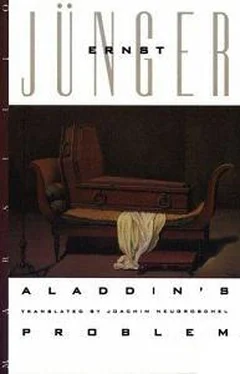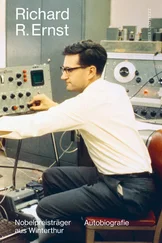"General, we are supplying them for free. And besides, they will bring you a good return."
The discourse would have been worthy of the quill of a Goldoni, but I do not wish to elaborate on it. Contact between idea and business is unavoidable, but one should secrete the details — they had already tormented me during my house calls for Pietas. What's more, Sigi had a feeling for cynical comments and Humayum for pungent remarks. A dictator appreciates both; they make him look as if he would stop at nothing.
That is why I want to get to Sigi's results immediately. The general had been convinced of the importance of the plan "right off the bat" — if only because it was backed by the mighty Jersson. The installations alone would open up a territory that had previously been visited purely by tourists. Many hands would be needed. Men and women who eked out wretched livelihoods here or became guest workers in Western countries would earn a living in situ. Rivers that had long since dried up would once again yield gold.
That was only the start. If Terrestra succeeded in creating a huge religious site here, a central cemetery for the planet, then not only the dead would come — it would turn into a place of pilgrimage, for greater and greater hosts of the bereaved and the devout.
The check had also buoyed up Humayum's optimism. He shook Sigi's hand: "Dear friend, my best to your uncle; I am with you — you can send a telegram to the pope."
71
Sigi had soon tired of his job; he returned to his Prussian biographies. His uncle had provided him with a handsome commission.
The signing of the papers was followed by a flood of applications. They covered a lot more than the advance payment before a single spit had been turned. Promoters from the oil trade drafted pamphlets, which were sent out into the world. These men gave free rein to their sense of humor. For example: "We cannot promise you eternal bliss, but we can promise you eternal rest." Or:
"Would you like to be united with your loved ones forever?" Also: "We offer protection in our towers and vaults, for the living as well." Secondary businesses were already crystallizing; travel agencies, airlines, insurance companies, hotels, emergency accomodation in case of a catastrophe. It was good that we had Jersson backing us: it all went far beyond the capacity of Pietas. On the other hand, it is amazing how simple a business becomes when it expands on a large scale. Uncle Fridolin was not up to it; he had a knack for details, but not for simplicity.
Soon, orders arrived. The first letter that comes to mind was from a woman living on a government pension in a small town near Hanover. She had always been haunted by the nightmare "that the gravediggers would dig her up again" — now she offered her life savings for a modest plot in Terrestra. She also wanted to take along her daughter, who had been dead and buried for years now. My uncle did not know Saint Lactantius even by name; but in this case, he followed the saint's maxim: "We cannot neglect our obligation to bury anyone, even strangers; for it there are no kinfolk, they are replaced by humanitarianism." The woman and her daughter received free graves and free airfreight. A good beginning; it was written up in the newspapers.
That was small potatoes; the first large crop was brought by a Brazilian sect, which purchased one of the subterranean halls. They all wanted to be with their guru. They also set up a chapel there. It promised to draw many periodic visits.
The churches smelled competition. They, in turn, offered sites — but how could they vie with Terrestra. Whenever a new municipal councillor took office, he did not feel bound by any contract; the soil turned into capital. Parking lots and high-rises covered the old ground; the graves were demolished by excavators.
One of our departments had the task of purchasing relics, another had to computerize standard reference works like Who's Who and the Almanac de Gotha; whenever someone with a rank and name passed away, Terrestra offered its services. Some people had already signed contracts with us and had viewed their future sites during a vacation trip.
The demand for towers was surprising — but luckily we had any number of them. One fortunate detail was that families, clans, and other groups did their own furnishing and decorating; it reduced our workload. A primal instinct was rearoused. Supposedly, even elephants head toward a common graveyard when the end is nigh.
72
I also benefited personally from my insurance background. Terrestra soon appeared to be growing exuberantly. Travel agencies for the living became larger than those for the dead. Then the hotels, the carpenter's shops, the stonemason's studios, both in situ and in various countries, all the way to the orchid gardens in Singapore.
Permanent services had to be established — say, for placing wreaths on specific dates or for eternal lights and other ritual objects. The Chinese, who soon became our best clients, wanted small oblations to be served, and they also set great store by protection against spirits. Despite Uncle Fridolin's resistance, I had made sure that no machines were used; for their final journey, the dead were to be carried on shoulders, and no electric light was to burn in the vaults. Many hands had to be employed, which pleased the general. In his opinion, unnecessary work is of greater social benefit than necessary work, which is inevitable and emerges of its own accord. But we were supplying him with the construction of pyramids.
Although the burials have already commenced, we are still setting up shop. The process resembles that of the oil business; but while the latter robs the earth, we enrich it — and all the way to the frontier of time, beyond which a dead planet will orbit around the sun.
Tombs that no one tended anymore were earmarked for being walling up, and a mere rumor about the method involved would scare off any grave robber. Here too, Jersson's genius has proved itself. For the capping, he wants to use a layer of refuse: not only will it cost nothing, but Terrestra will reap high profits by recycling it. Truly a man who knows how to sail in every wind.
73
Construction of the central airport is complete; it is ringed by hotels, banks, office buildings. At the end of the runways there are storehouses for freight. From there, conveyor belts lead to a second complex. The latter is the size of a medium city. This is where the procedures begin with which we are familiar from Pietas. They occupy all the dealers, artisans, and artists who have mortuary obligations.
The path continues to the religious sites. Options for freethinkers and sun worshipers have already been granted; however, the old and venerable communities are also involved. We were surprised by the requests for new graves for people already buried — and not just individuals. A growing majority seems to be dissatisfied, even depressed, especially in the industrial countries. People do not even wish to be buried there anymore.
During their final journey, the dead are carried along an avenue of cypresses; it ends at a gate. The gate does not bear Dante's inscription; rather, in many languages, alphabets, and ideograms, it says: "Room for every hope."
We soon realized that a single gate was not enough.
74
The further the plan was implemented, the less I participated mentally and physically. That is the fate of all Utopias — the way a Leonardo and even a Jules Verne envisioned human flight was different from the way we have made it come true. We live more strongly in dreams; this is where our strength pours forth and stops. My nihilism contributed to my bad mood.
I had conceived a necropolis on a global scale, a shore for Charon's boat, and the restoration of their dignity to the dead. Culture is based on the treatment of the dead; culture vanishes with the decay of graves — or rather: this decay announces that the end is nigh.
Читать дальше












